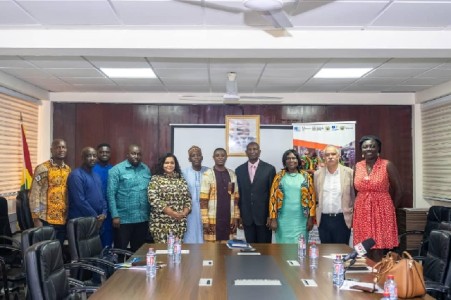Intangible cultural heritage for sustainable dev’t project launched

The Chief Director of the Ministry of Tourism, Arts and Culture, Mr John Yao Agbeko, has stated that there is a need for Ghana to explore the intangible cultural heritage assets that the country has, since there has not been substantive investigations into them within the context of the country.
He made this statement during the launch of the Intangible Cultural Heritage (ICH) for Sustainable Development in Ghana on Monday, 4 July 2022, at the Ministry’s Conference Room.
The project aims to provide training on intangible cultural heritage for knowledgeable people through networking, as the trainees will serve a technical team for community-based inventorying across the country in all the 16 regions.
The amount budgeted for this project is USD122,423.00 and will end within two years.
Mr Agbeko said it is expected that a national strategy will be developed to ensure that the contextualised safeguarding measures drawn up for the ICH in Ghana are in line with the spirit and principles of the convention that Ghana signed at the end of this project.
According to Mr Carl Ampah, the representative of UNESCO Ghana elaborated that UNESCO is looking forward to collaborating with France and Ghana through the upcoming projects, in addition to the project in the consolidation of a fort in Amsterdam.
He conveyed UNESCO’s gratitude and appreciation for the generous contribution to the ICH fund by the government of France.
He added that France had contributed immensely to the preservation of the cultural heritage of Ghana.
Mrs Elizabeth Matilda Mantebeah, a trained facilitator and heritage practitioner at UNESCO, gave an overview of the project by touching on the importance of the convention in safeguarding, respecting other cultural heritage and creating awareness about what Ghana has.
The Intangible Cultural Heritage is a collaboration among the National Folklore Board, The National Commission on Culture, UNESCO Country Office, Ghana National Commission for UNESCO; and the Ministry of Tourism, Arts and Culture.
Source: Classfmonline.com




